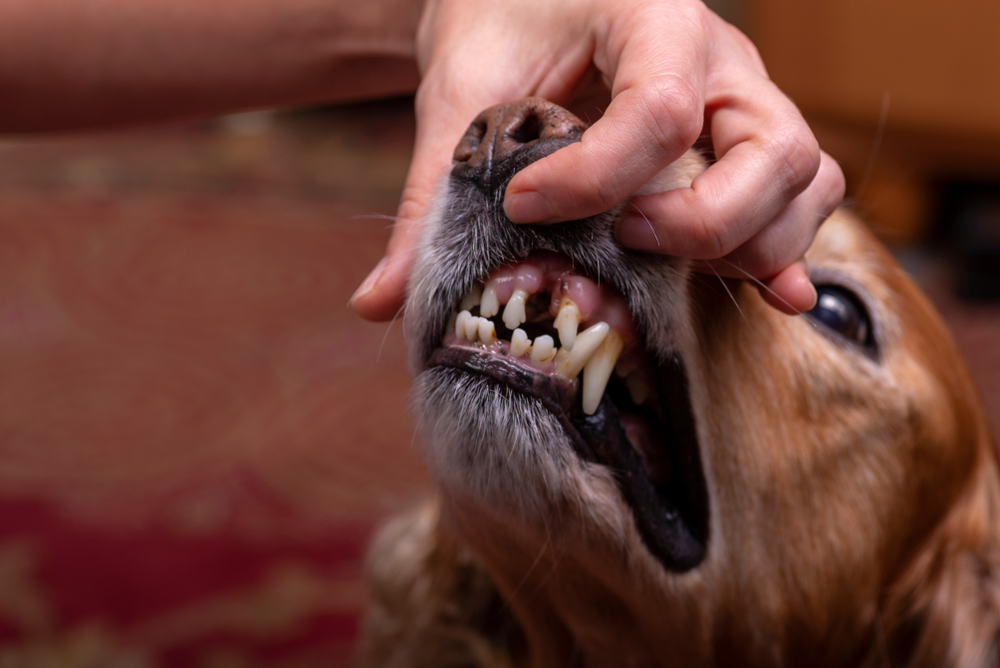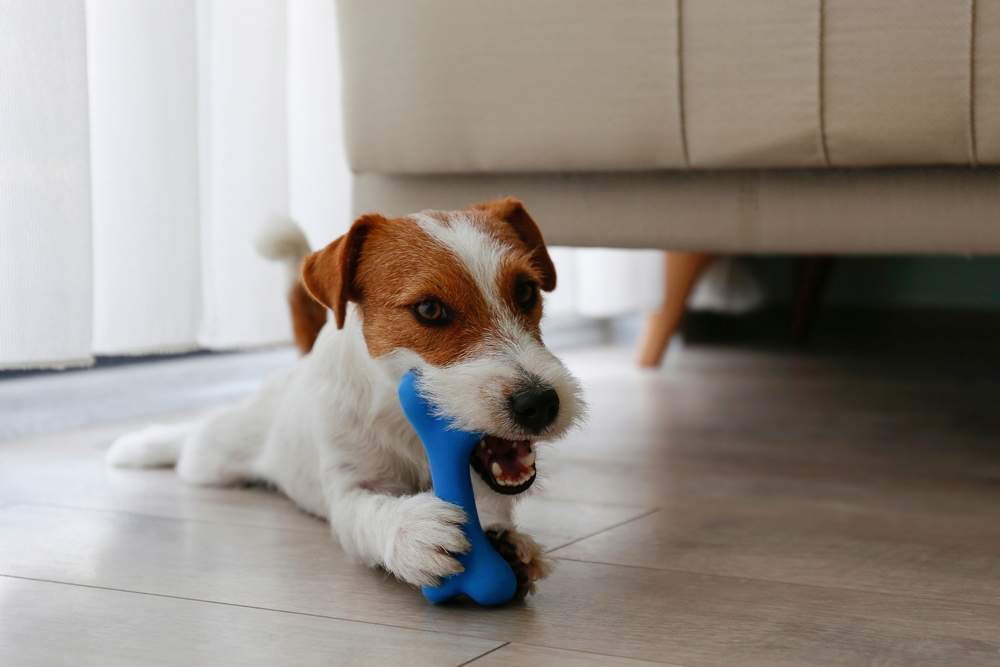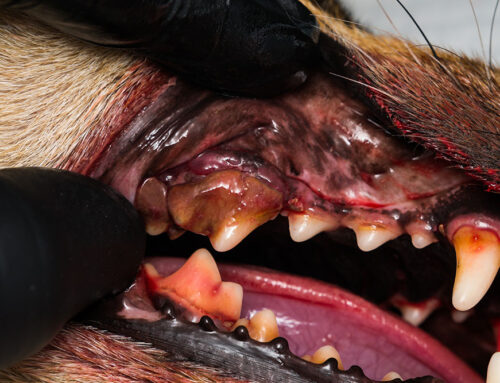For many dogs, chewing is a natural and enjoyable activity that helps keep their teeth clean and their minds engaged. However, excessive chewing or chewing on the wrong materials can lead to severe wear of tooth enamel and tooth fractures, which can cause your pet serious pain. Our North Bay Veterinary Dentistry team explores ways to prevent severe wear and tooth fractures in dogs who love to chew, ensuring their teeth remain in tip-top condition.
The risks of hard chews for dogs
Many dogs have a natural instinct to chew, which serves various purposes: stress relief, mental stimulation, and to some extent maintaining periodontal health. However, chewing, especially on overly hard objects, is not always beneficial and can lead to:
- Tooth fractures — Fractures can expose the pulp inside the tooth or kill the pulp, allowing infection to take root and resulting in significant pain. Veterinary intervention is necessary to treat the potential infection and repair or extract the damaged tooth.
- Severe wear — Even if a tooth doesn’t crack, chewing on hard objects can erode the enamel, the tooth’s protective outer layer. This is especially true for toys that have rough surfaces or become covered in sandy soil. Worn enamel exposes the tooth’s sensitive inner parts and causes discomfort and potential infection.
- Choking — Pieces of hard toys or bones can break off and become lodged in a dog’s throat, posing a serious choking hazard that can be life-threatening and may require emergency intervention.
- Gastrointestinal blockages — If a dog swallows large fragments of hard objects, they can become blockages in the digestive tract that often require surgical removal.
- Tooth-root abscesses — Even if the pulp is not exposed, bacteria can enter through a tooth’s fractured surface or the pulp can die and the result (whether it takes weeks or months) is an abscess (infection).
- Oral trauma — Chewing on hard objects can cause trauma to the tongue, cheeks, gums, and other soft tissues in the mouth that manifest as painful sores or cuts that can become infected.
- Damage to existing dental work — Dogs who love to chew on hard objects and have had dental work, such as crowns or fillings, are at a higher risk of damaging these repairs and needing additional intervention.
How to choose the right chew toys for your dog
To prevent oral issues most effectively, choose the right chew toys for your dog. These tips will help you select the best options:
- Avoid overly hard toys — Bones, antlers, hard nylon toys, and other toys that are very dense (like Yaks milk chews) can be too tough for your dog’s teeth. Instead, opt for toys that have some give when pressed (test them by flexing the toy or indenting them with a thumbnail).
- Opt for rubber toys — Durable rubber toys like Kongs, West Paws designs, and Goughnuts are excellent for chewers. They are tough enough to withstand rigorous chewing, but soft enough that teeth are not damaged.
- Use Dog-safe Balls and avoid sand – If you buy tennis balls, make sure they are made for dogs. If you play on sand or sandy soil, wash the ball off between throws
- Consider dental chews — Many dental chews designed to promote your dog’s oral health while being gentle on their teeth are available. Look for products approved by the Veterinary Oral Health Council (VOHC).
Oral damage prevention tips for chewers

Keeping your dog from chewing is likely impossible, but you can guide your pooch’s gnawing tendencies to help prevent oral damage. Here are some tips to help avoid tooth problems when your dog chews:
- Inspect chew toys regularly — Check for signs of wear and replace worn-down toys to prevent your dog from chewing on small pieces that could be easily swallowed.
- Rotate toys — Provide a variety of toys to keep your dog interested and to reduce excessive wear on any single toy.
- Supervise chewing sessions —Supervise your dog to ensure they are not chewing the toy too aggressively or biting off pieces.
- Teach appropriate chewing — Redirect your dog who starts chewing on an inappropriate item to an appropriate chew toy and reward them when they make the right choice.
- Provide mental stimulation — Dogs can chew excessively because they are bored, so provide plenty of mental and physical stimulation through play, exercise, and training.
- Schedule oral exams — Regular oral exams allow your primary care veterinarian or our team to assess your pet’s dental wear and tear and recommend specific chew toys and dental products that suit your dog’s needs.
Preventing severe wear, tooth fractures, and other oral damage in dogs who love to chew involves a combination of choosing the right toys, monitoring chewing habits, and regular veterinary care. Schedule an appointment with our North Bay Veterinary Dentistry team, so we can keep a close eye on your power chewer’s oral health.






Leave A Comment